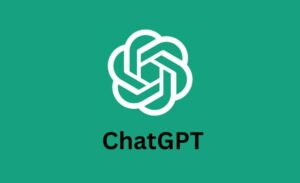
ChatGPT vs. Doctors – In a plot twist straight out of a sci-fi drama, a small-scale study showcased artificial intelligence (AI) outperforming human doctors in diagnosing illnesses. Gina Kolata of *The New York Times* broke the story, and it’s packed with drama, a sprinkle of humor, and a sobering reality check for the medical profession.
The Experiment: Chatbots Enter the Operating Theater (Virtually)
Picture this: Fifty doctors, armed with their years of training and stacks of medical textbooks, were pitted against ChatGPT, an AI chatbot that doesn’t even have a pulse.
The challenge? Analyze case histories, diagnose the patients, and explain the reasoning. Doctors were split into two groups: one with ChatGPT as their trusty sidekick and one going solo. Meanwhile, ChatGPT itself went rogue, diagnosing patients with no human help at all. A panel of expert graders, blissfully unaware of who (or what) was behind the answers, scored the results.
The Shocking Results
– Doctors flying solo: A respectable average score of 74%. Not bad for humans with stethoscopes.
– Doctors with ChatGPT assistance: A slightly better 76%. Maybe they should’ve listened more closely to their AI co-pilot.
– ChatGPT alone: A jaw-dropping 90%! This machine doesn’t just crunch numbers—it reads symptoms like a pro.
Why It Matters (and Why It’s Funny)
Let’s pause and imagine the scene: a human doctor confidently delivering a diagnosis, only to have ChatGPT quietly murmur from the sidelines, “Actually, it’s lupus.” The awkward silence that follows? Priceless.
The study also exposed a critical flaw in humans –>> overconfidence. Doctors with AI assistance could’ve scored closer to 90% if they had trusted their digital partner more. But who wants to admit they were out-diagnosed by an algorithm?
The Future of Healthcare: Man, Machine, or Marvel?
While nobody wants to walk into a hospital run entirely by robots (cue *Black Mirror* vibes), this study suggests AI is here to stay—and for good reason. The key is integration, not replacement. Doctors who embrace AI as a tool to enhance their expertise could revolutionize healthcare. But they’ll have to swallow a bit of pride along the way.
The Takeaway
This isn’t the end of human doctors, but it’s a wake-up call. Medicine’s future will likely see humans and AI working hand-in-hand—or keyboard-to-keyboard—to ensure patients receive the best care possible. And if AI keeps improving, we might want to teach ChatGPT how to deliver bad news with a little more bedside manner. After all, a chatbot saying, “Oops, you’ve got the flu,” just won’t cut it.
The diagnostic revolution is here, and it’s equal parts thrilling, humbling, and a little hilarious.